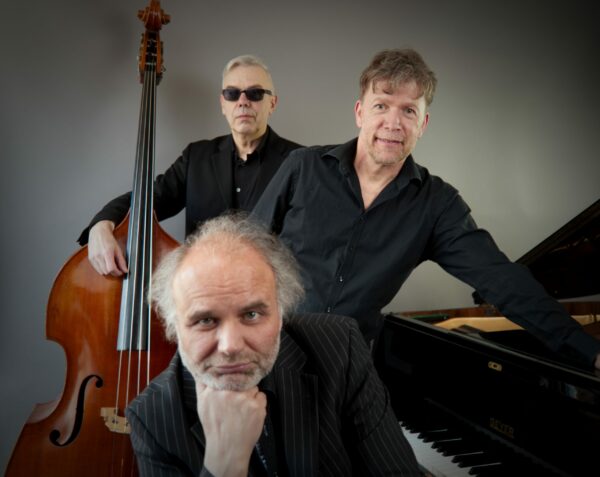Even though Helmut Lipsky presently lives in Montreal, he appears to be a resident of the world, as he is as likely to perform in Europe as he is in the Americas. And such was the case for the performance of …. Au Parfum De Tango, which L’Art De Passage (Art Of Transition) recorded live at the B-Flat jazz club in Berlin in 2003. In this program, the quartet explores the intricacies of the tango, particularly the tango nuevo movement led by Astor Piazzolla. However, because of the freedom that tango nuevo allowed, as it broke with the forms of the traditional Argentinean tango causing much consternation at the time of its initial development L’Art De Passage reinterprets some of Piazzolla’s classic tangos like „Libertango“ through fresh new arrangements adapted to the strengths of the group, similar to the freedom that jazz allows in reshaping standards through individualistic expressiveness. In addition, the quartet’s concert includes five of the members’ own compositions that capture the passions of the tango through virtuosic execution. Even though Tobias Morgenstern substitutes the accordion for the traditional bandoneon, the lasting impressions of L’Art De Passage are the unmistakable immersion of the members in the music and the fullness of sound attainable by but four musicians. In addition, much of the music surges and contracts from an aggressive sense of percussiveness, even though the piano is the only percussive instrument in the quartet. …. Au Parfum De Tango commences with Lipsky’s own tango, „Gitango,“ and it proceeds with the expected elements of dramatic pauses, expansive crescendos, ornamental flourishes and highly emotional and sudden buildups to climaxes and falloffs into softness. The next number, Piazzolla’s „Milonga del Ángel,“ however, maintains simmering tension throughout the performance with ominous understatement that one expects to burst open into startling exclamation. But it never does. Instead, L’Art De Passage keeps the emotions of the song contained, like the lid on a pressure cooker. With Wolfgang Musick’s bass lines somewhat reminiscent of Wayne Shorter’s „Footsteps“ as he prods the group, the remaining musicians play free, Stefan Kling’s piano coruscating in the background. One of Piazzolla’s best-known compositions, „La Muerte Del Ángel,“ receives fresh treatment in the hands of L’Art De Passage, as it commences in canonic form played by violin and piano, their counterpoint attaining heightened intensity before the start of the theme. And then that theme itself is played in a more straightforward fashion with the diminished force of the stomping bass lines suggesting a march. The musicians’ own compositions are equally provocative. Lipsky’s „Crime Et Châtiment,“ based upon a controlling pedal point throughout the entire piece, depends upon minor-key chromatic descents for its structure as Kling sprinkles the somberness with contrasting bright confettied notes. Morgenstern’s „Sons Et Parfums Aux Quatre Vents,“ though in tango form as well, becomes a showcase for his jaw-dropping technique, its full extent merely implied on previous tracks, as he scampers through his own intricate passages. The audience at the B-Flat responded with enthusiasm at the conclusion of the music presented to them by L’Art De Passage, and well they should have. Even the recording of the concert leaves the impression that L’Art De Passage revels in the opportunity to play such challenging music that connects immediately and strongly with its listeners music arising from the highest levels of the intellect that affects the deepest recesses of the heart.
